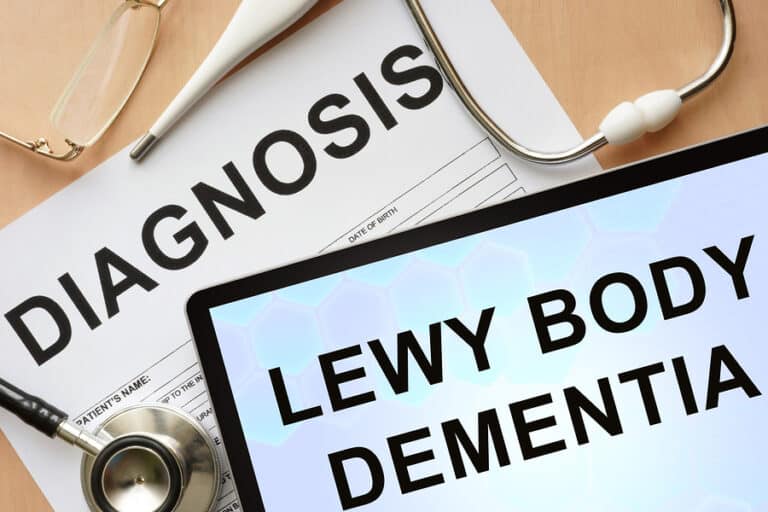LBD or Lewy body dementia can be challenging for a family to deal with. This disease is the second most common kind of dementia right after Alzheimer’s disease. What is a Lewy body? It is a disease that happens when clumps of protein form inside the brain. The proteins can build up and cause massive problems. People over 60 are generally at risk for this disease, and it can cause dementia. Many families don’t understand the best ways to care for a senior with Lewy body dementia. The best way to ensure the older loved one gets help during this challenging part of life is to get an in-home care specialist. These professionals will know how to handle a senior with dementia, help remind them to take medications, and create a full care plan.
It’s time to learn how to help a senior with Lewy body dementia, even when it is hard to do. There are many ways for an in-home care specialist to help monitor a senior and ensure their safety. When this disease occurs, it can be crucial for the family to take care of their loved one and to learn about the disease.
How In-Home Care Can Help With Dementia
A caregiver can help inform the family about what is going on in the older adult’s life. They can help educate the entire family about the disease and the best ways to respond to odd behaviors. This can help ease a family’s stress. There are other things in-home care specialists can help with.
Attend Doctors Appointments
Seniors with dementia may forget what happens at their doctor’s appointments. A caregiver can go along and go over medications, special conditions, and anything else that needs to happen to provide excellent care. They can then keep track of and manage medications that could help care for older adults with dementia.
Create a Peaceful and Easy Routine
A complex routine may be how a senior used to live. However, it can be hard to maintain after the older adult has been diagnosed with Lewy body dementia. An in-home care aide can help create a plan that allows the senior to still feel in control and independent while still helping them along the way.
Change The Environment
A senior may experience hallucinations that scare them or make them anxious. There may be no easy way to limit these hallucinations. However, a change in the environment might help the senior feel more secure and less anxious. A caregiver will monitor the senior closely and pay attention to when and where the older adult experiences the hallucinations and may change their layout.
Plan For The End Of Life
While a senior still has good moments, it will be necessary for a caregiver to help them understand what they need to do before the end. This can be putting together a will, explaining life insurance, and other things that need to be sorted out while the senior is lucid.
LBD is tough to deal with, and many older adults who have been diagnosed with it will only live another 5 to 7 years. However, it is always a case-by-case situation. It depends on the person and how advanced it gets.
Sources: https://my.clevelandclinic.org/health/diseases/17815-lewy-body-dementia#:~:text=After%20diagnosis%2C%20most%20people%20with,disease%20with%20dementia%20are%20ongoing.
https://www.mayoclinic.org/diseases-conditions/lewy-body-dementia/symptoms-causes/syc-20352025
If you or an aging loved one are considering In-Home Care Services in Westwood MA, or anywhere in Eastern Massachusetts, please call the caring staff at CARE Resolutions – (508) 906-5572.
- Tips for Seniors Who Want to Try Social Media - April 7, 2025
- How Can Seniors Transition Home from the Hospital Smoothly? - March 19, 2025
- Can Seniors Get Fit and Stay Active with Chronic Health Issues? - March 6, 2025



